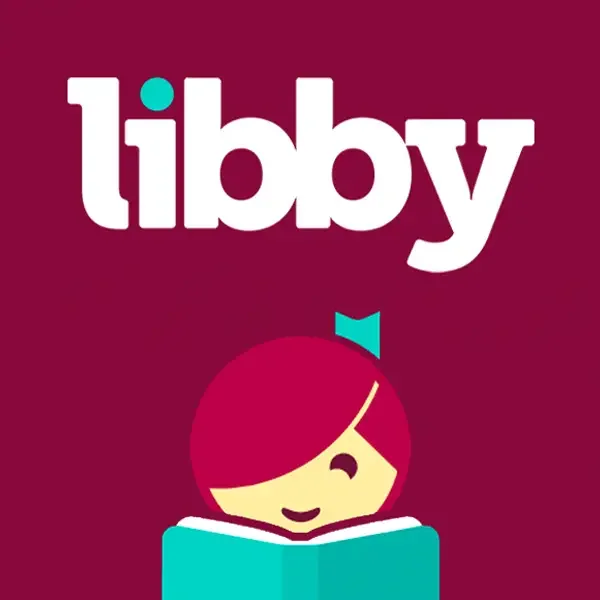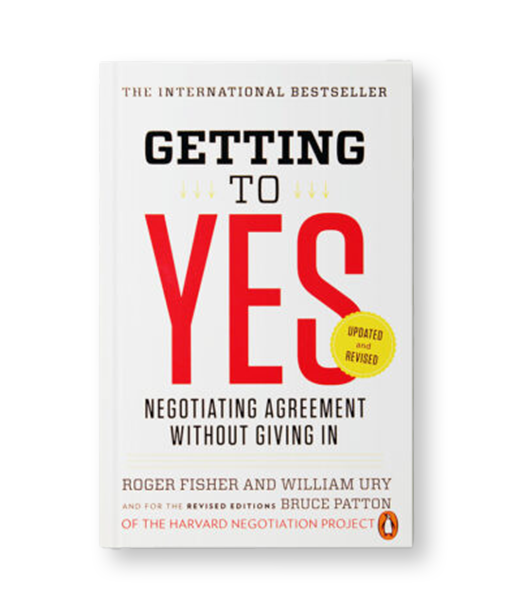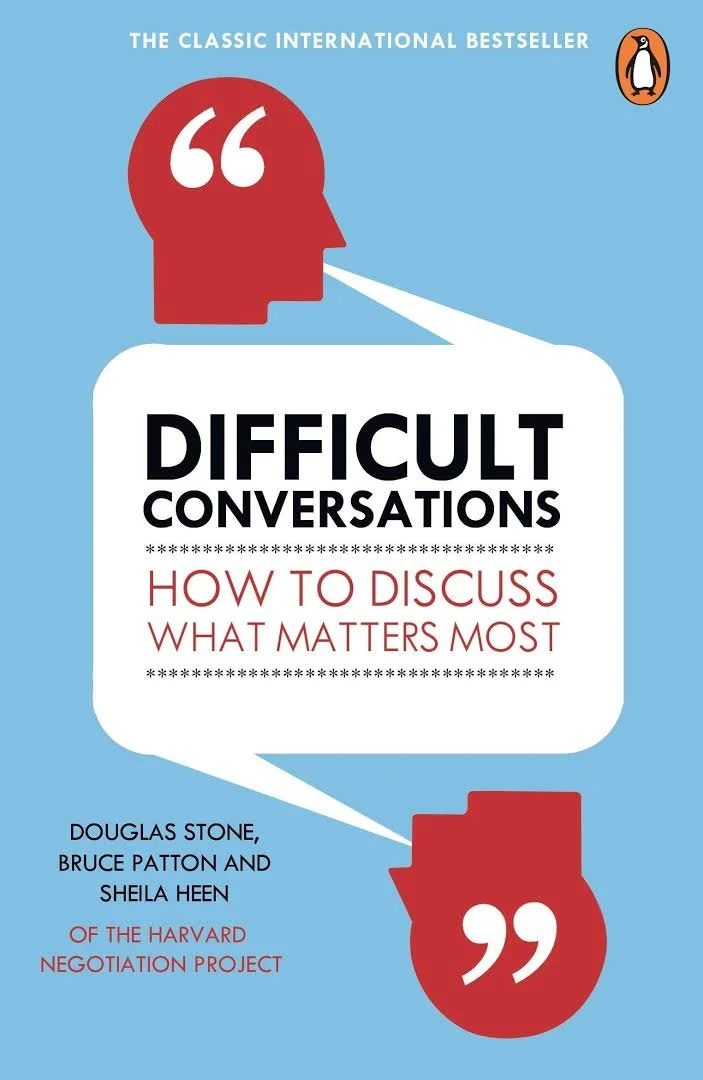Your Fall Reading List
Seasonal transitions and opportunities for rebirth
I always get sentimental around this time of year. My thoughts are a jumble between “summer don’t go!”, “it’s fall already?”, and “when are the apple cider donuts ready?” After a crazy summer of travel, Autumn is the perfect season to slow down and recommit to some of the goals you want to meet before the end of the calendar year.
For many folks, they think about what books they want to read as they light a candle and get cozy with a cup of tea or hot apple cider.
Why this reading list matters this season
I always get asked: “What negotiation books should I read?” Over the years, I’ve curated a well-rounded list of favorites - ones I rely on, return to, and recommend to clients because they’re informative, build skills, and confidence. While they’re not exactly my idea of relaxing with a mystery novel or a heartwarming tale wrapped up in a blanket by the window, these are books that I promise can be game-changing for your career and leadership skills.
This reading list is not just for students, but for anyone who wants stronger communication, more clarity, and more agency in everyday conversations. Think of it as your negotiation toolkit for the season ahead.
Remember, negotiation isn’t just reserved for big deals or corporate settings. It shows up in day-to-day life: in setting boundaries, negotiating workloads, voicing expectations, or asking for what you deserve. These books combine strategy, research, and heart to guide you through feedback sessions, tough talks, and everyday advocacy.
💡 Audio tip: I prefer using the Libby app with my local library card. Audio versions help me read on walks, commutes, or while doing chores. If you’re like me and struggle to sit down and read a book, try the audio book to listen to while you’re folding laundry.
What’s in the kit (and why it matters)
| Book | What It Adds to Your Growth |
|---|---|
| Getting to Yes | Foundational mindset & principled structure – or what I call “The Bible of Negotiation” |
| Difficult Conversations | Tools to approach hard talks with empathy |
| Thanks for the Feedback | How to receive feedback thoughtfully and grow |
| The Authority Gap | A wealth of information on the societal bias against women |
1. Getting to Yes – The Bible of Negotiation
Many folks will ask me about the latest trendy negotiation book but I always revert to recommending Getting to Yes, the OG of negotiation books, as it’s stood the test of time (and they’ve also released updated editions).
This book introduces the concept of principled negotiation, a method designed to reach mutually beneficial agreements without damaging relationships. It moves people away from bargaining or horse-trading - what most people envision when they hear the word “negotiate” and which often leads to deadlock or resentment.
The book instead advocates focusing on underlying interests, separating people from the problem, and creating win-win options.
I like Getting to Yes lies because of its practical approach, offering strategies that can be applied in both professional and personal contexts. It’s also a super easy read - not like a textbook at all.
The examples are relatable to any reader and emphasize collaboration rather than confrontation. The book does an excellent job of reframing negotiation as a process of problem-solving rather than a battle to be won (dare I call it a more “feminine” approach?).
2. Difficult Conversations – or what we call “DiffCon” for short
Difficult Conversations: How to Discuss What Matters Most by Douglas Stone, Bruce Patton, and Sheila Heen is a guide to handling the tough talks we often avoid—whether at work, with family, or in personal relationships.
The book explains that every difficult conversation is made up of three underlying conversations:
the “What Happened” conversation (focused on differing perceptions and assumptions),
the “Feelings” conversation (emotions that are often unspoken),
and the “Identity” conversation (how the issue affects our sense of self).
By breaking conversations into these layers, we’re better able to understand why disagreements feel so charged and why they often escalate.
The book offers practical tools for approaching these moments with curiosity and clarity rather than defensiveness. I’m frequently referencing this book in my trainings because so many negotiations devolve because of a lack of understanding and the emotional charge around these difficult conversations.
Probably the most important takeaway from this book is that it emphasizes listening to understand rather than to rebut. We could all be better off if we knew how to better listen to others during moments of tension.
3. Thanks for the Feedback – Turn Words into Momentum
Feedback comes in all shapes - sometimes gentle, often messy. Thanks for the Feedback: The Science and Art of Receiving Feedback Well by Douglas Stone and Sheila Heen explains with their research why feedback can be so challenging to accept and how to get better at using it.
The authors organize feedback into three categories:
appreciation,
coaching,
and evaluation.
By unpacking these different types of feedback, the book helps you recognize what they’re actually looking for in a given moment, and why feedback can feel confusing or even contradictory.
The core message is that while we can’t control how feedback is given, we can control how we receive it.
Through research and relatable real-world examples, the book shows readers how to separate useful information from delivery, manage defensive reactions (we’re all guilty!), and turn even poorly delivered criticism into valuable insight.
Utilizing the tools they recommend will have everyone thinking you’re incredibly emotionally mature and wise. I’ve been referencing this book ever since I picked it up as assigned reading in the first week of my negotiation class in my master’s program and I continue to use its content in my trainings.
4. The Authority Gap – Like taking the red pill on gender issues
The Authority Gap: Why Women Are Still Taken Less Seriously Than Men, and What We Can Do About It by Mary Ann Sieghart demonstrates the persistent ways in which women’s authority is undermined, dismissed, or overlooked compared to men’s.
She presents a mountain of data and statistics, that makes clear how this gap shows up everywhere - from the workplace to politics to everyday interactions - often in subtle but cumulative ways.
Women are interrupted more, their expertise questioned more often, and their contributions frequently downplayed, leading to a cycle that reinforces inequality and limits their influence.
I felt incredibly seen and validated when reading this book, because it had the data to back up my lived experiences and put labels on issues that I felt but struggled to articulate.
This book is both an exposé and a call to action and I’m shocked that more people haven’t already read it.
**A transparency note here that most of the authors above, Roger Fisher, William Ury, Bruce Patton, Doug Stone, and Sheila Heen, are all a part of the Harvard ecosystem of negotiation so perhaps I’m a bit biased.
How to read, reflect, and rise
Start with foundation: Begin your season with Getting to Yes - it shapes how you think, frame, and ask.
Layer in emotional muscle: Choose between Difficult Conversations and Thanks for the Feedback—to grow both your emotional agility and receptiveness. (But I truly think that once you’ve read one, you’ll want to read the other.)
Close with data, data, data: Finish with The Authority Gap to arm yourself with the immense amount of undeniable data so that you’ll never be able to un-see the bias around us.
✨ Pro tip: After each chapter, write one insight or technique you’ll try within the next calendar week. Having a plan makes it more likely you’ll actually implement the new techniques you’re reading about.
Why I’m excited for you to read these
When negotiators bring this toolkit into their lives, I see posture shift, voices settle, and communication become more intentional. I’d love to hear your thoughts - so don’t hesitate to reach out to me on whatever platform to let me know your reaction to these books!
📖 Re-read in a year: I revisit these books periodically, and each time I find new insights I didn’t see before—plus I notice how much I’ve grown. You’ll be surprised how differently they land at different seasons of your life.
Ready to go deeper?
If you want to move from reading to doing, I invite you to join the Advanced Negotiation Intensive (ANI)—a 4-week, live + on-demand negotiation program designed especially for women. ANI includes:
Live group coaching calls with me
The Fundamentals of Negotiation for Women course (six modules grounded in gender bias research)
The ASPIRE Framework™ (a clear negotiation structure you’ll return to in any setting)
Lifetime access to video modules, workbooks, and recordings
A private community of fellow negotiators
I’ve received incredible feedback on this program and I’m super excited for you to join!
Do you hesitate to negotiate because of thoughts like:
“I don’t want them to think I’m greedy”
“I’m sure it’s a fair salary… right?”
“Maybe next time…”
Learn step-by-step how to negotiate without these concerns getting in the way. This program won’t simply tell you to “be more confident” - instead it will address your concerns rooted in research-proven ways.
PLUS, join these live calls to get all your lingering questions answered.
Guarantee: If you complete the program and don’t learn anything new, you’ll receive a full refund.
Spots are limited to keep the group intimate and high-touch and I only offer the program a couple of times a year. Join the priority list and receive more information here.
About the Author:
Joan is a negotiation coach and trainer. She served as a research fellow at the Women and Public Policy Program and started multiple negotiation coaching programs at Harvard.












